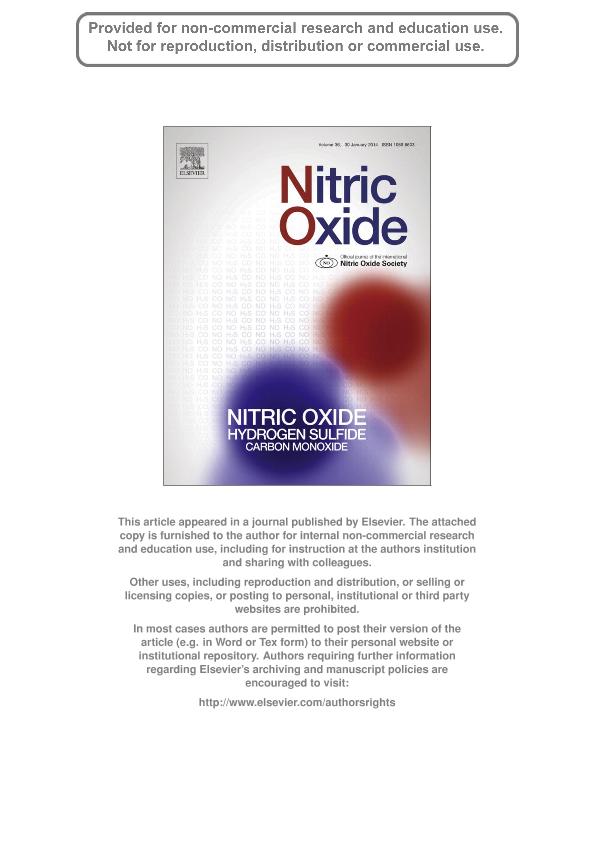Artículo
Inhibition of nitric oxide is a good therapeutic target for bladder tumors that express iNOS
Belgorosky, Denise ; Langle, Yanina Verónica
; Langle, Yanina Verónica ; Prack Mc Cormick, Bárbara Patricia
; Prack Mc Cormick, Bárbara Patricia ; Colombo, Lucas Luis
; Colombo, Lucas Luis ; Sandes, Eduardo Omar; Eijan, Ana Maria
; Sandes, Eduardo Omar; Eijan, Ana Maria
 ; Langle, Yanina Verónica
; Langle, Yanina Verónica ; Prack Mc Cormick, Bárbara Patricia
; Prack Mc Cormick, Bárbara Patricia ; Colombo, Lucas Luis
; Colombo, Lucas Luis ; Sandes, Eduardo Omar; Eijan, Ana Maria
; Sandes, Eduardo Omar; Eijan, Ana Maria
Fecha de publicación:
01/2014
Editorial:
Elsevier
Revista:
Nitric Oxide-biology and Chemistry
ISSN:
1089-8603
Idioma:
Inglés
Tipo de recurso:
Artículo publicado
Clasificación temática:
Resumen
Bladder cancer is the second cause of death for urological tumors in man. When the tumor is nonmuscle invasive, transurethral resection is curative. On the other hand, radical cystectomy is the treatment chosen for patients with invasive tumors, but still under treatment, these patients have high risk of dying, by the development of metastatic disease within 5 years. It is therefore important to identify a new therapeutic target to avoid tumor recurrences and tumor progression. Nitric oxide (NO) is an important biological messenger known to influence several types of cancers. In bladder cancer, production of NO and expression and activity of inducible NO synthase was associated to recurrence and progression. The objective of this work was to analyze if inhibition of nitric oxide production could be considered a therapeutic target for bladder tumors expressing iNOS. Using a bladder cancer murine model with different invasiveness grade we have demonstrated that NO inhibition was able to inhibit growth of bladder tumors expressing iNOS. Furthermore, invasive properties of MB49-I orthotopic growth was inhibited using NO inhibitors. This paper also shows that levels of NO in urine can be correlated with tumor size. In conclusion, inhibition of NO could be considered as a therapeutic target that prevents tumor growth and progression. Also, urine NO levels may be useful for measuring tumor growth.
Palabras clave:
Bladder Cancer
,
Inos
,
Nitric Oxide
,
Orthotopic Murine Model
Archivos asociados
Licencia
Identificadores
Colecciones
Articulos(OCA HOUSSAY)
Articulos de OFICINA DE COORDINACION ADMINISTRATIVA HOUSSAY
Articulos de OFICINA DE COORDINACION ADMINISTRATIVA HOUSSAY
Citación
Belgorosky, Denise; Langle, Yanina Verónica; Prack Mc Cormick, Bárbara Patricia; Colombo, Lucas Luis; Sandes, Eduardo Omar; et al.; Inhibition of nitric oxide is a good therapeutic target for bladder tumors that express iNOS; Elsevier; Nitric Oxide-biology and Chemistry; 36; 1-2014; 11-18
Compartir
Altmétricas



